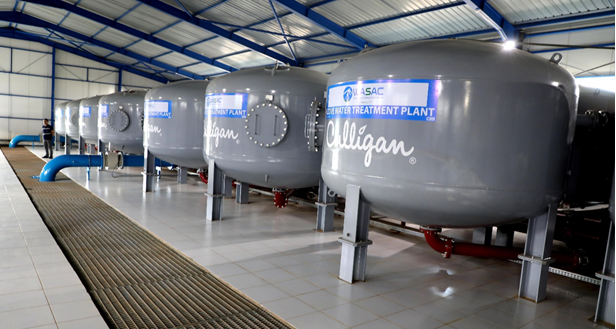Kigali, 28 August 2019: The Ministry of Infrastructure (MININFRA) began the dissemination campaign of Water and Sanitation Policies and related implementation strategies at district level. The official launch which took place in Karongi District brought together different water and sanitation partners that have a direct role to play in water supply and sanitation sector development. They include local authorities and technicians at district level, Water, Sanitation and Hygiene Officers, Private Operators for water supply and sanitation services, main water and sanitation sector Non-Governmental Organizations (NGOs) and community based organizations as well as Water and Sanitation Corporation (WASAC) Representatives.
The dissemination is aiming at ensuring awareness and ownership of the National Water Supply Policy and National Sanitation Policy and related frameworks, strategic actions for implementation to all Water and Sanitation actors especially local leaders, stakeholders, technical staff and communities, to make sure that their implementation strategies are captured in District Development Strategies and daily plans for Policies implementation.
From the presentation highlights, it was noted that the dissemination program was initiated to explain more about water supply and sanitation policies guiding principles and engage discussion over policy pillars and related policy statements and implementation actions.
The effective implementation of National Water Supply Policy will contribute in raising rural water supply access to 100 per cent by 2020 by fast-tracking implementation of a strategic investment programme. This policy will ensure safe, reliable and affordable urban water supply services for all while striving for financial sustainability. In the same vein, the National Sanitation Policy was also developed to raise and sustain household sanitation coverage to 100 per cent by 2020 while contributing to the development of safe, well-regulated and affordable off-site sanitation services for densely populated areas.
Participants were informed on the implementation mechanisms which will involve all ministries and public institutions, private sector; local communities and development partners that are responsible for water and sanitation, with the Ministry of Infrastructure taking the lead in coordination. It was clarified that at the district level, the One Stop Centers are implementers of the policy, under the overall governance and management of the District authorities, responsible for all areas which concern citizens’ lives.

 ENGL
ENGL KINY
KINY